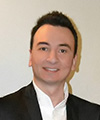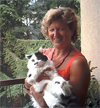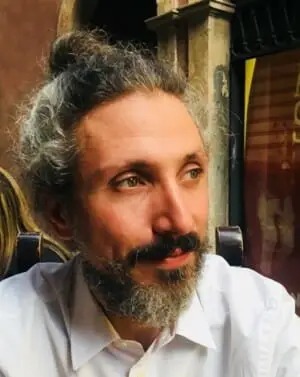Studying at the University of Verona
Here you can find information on the organisational aspects of the Programme, lecture timetables, learning activities and useful contact details for your time at the University, from enrolment to graduation.
Academic calendar
The academic calendar shows the deadlines and scheduled events that are relevant to students, teaching and technical-administrative staff of the University. Public holidays and University closures are also indicated. The academic year normally begins on 1 October each year and ends on 30 September of the following year.
Course calendar
The Academic Calendar sets out the degree programme lecture and exam timetables, as well as the relevant university closure dates..
| Period | From | To |
|---|---|---|
| Sem. IA | Sep 25, 2017 | Nov 11, 2017 |
| Sem. IB | Nov 13, 2017 | Jan 20, 2018 |
| Sem. IIA | Feb 26, 2018 | Apr 21, 2018 |
| Sem. IIB | Apr 23, 2018 | Jun 9, 2018 |
| Session | From | To |
|---|---|---|
| Sessione Invernale | Jan 22, 2018 | Feb 24, 2018 |
| Sessione Estiva | Jun 11, 2018 | Jul 28, 2018 |
| Sessione Autunnale | Aug 27, 2018 | Sep 22, 2018 |
| Sessione Straordinaria | Jan 14, 2019 | Feb 16, 2019 |
| Session | From | To |
|---|---|---|
| Sessione Estiva | Jul 16, 2018 | Jul 21, 2018 |
| Sessione Autunnale | Nov 12, 2018 | Nov 17, 2018 |
| Sessione Primaverile | Apr 1, 2019 | Apr 6, 2019 |
| Period | From | To |
|---|---|---|
| All Saints Day | Nov 1, 2017 | Nov 1, 2017 |
| Immaculate Conception | Dec 8, 2017 | Dec 8, 2017 |
| Christmas break | Dec 22, 2017 | Jan 7, 2018 |
| Easter break | Mar 30, 2018 | Apr 3, 2018 |
| Liberation Day | Apr 25, 2018 | Apr 25, 2018 |
| Labour Day | May 1, 2018 | May 1, 2018 |
| Patron Saint Day | May 21, 2018 | May 21, 2018 |
| Republic Day | Jun 2, 2018 | Jun 2, 2018 |
| Summer break | Aug 13, 2018 | Aug 18, 2018 |
Exam calendar
Exam dates and rounds are managed by the relevant Humanistic Studies Teaching and Student Services Unit.
To view all the exam sessions available, please use the Exam dashboard on ESSE3.
If you forgot your login details or have problems logging in, please contact the relevant IT HelpDesk, or check the login details recovery web page.
Should you have any doubts or questions, please check the Enrollment FAQs
Academic staff
 alex.arcozzi@univr.it
alex.arcozzi@univr.it
 augusto.barbi@univr.it
augusto.barbi@univr.it
 evita.calabrese@univr.it
evita.calabrese@univr.it
Carnero Roberto
 roberto.carnero@univr.it
roberto.carnero@univr.it

Mastrocinque Attilio
 attilio.mastrocinque@univr.it
attilio.mastrocinque@univr.it
 +39 045802 8386
+39 045802 8386
 linda.napolitano@univr.it
linda.napolitano@univr.it
 stefania.torquati@univr.it
stefania.torquati@univr.it
 nicola.turrini@univr.it
nicola.turrini@univr.it
 gianmaria.varanini@univr.it
gianmaria.varanini@univr.it
Study Plan
The Study Plan includes all modules, teaching and learning activities that each student will need to undertake during their time at the University.
Please select your Study Plan based on your enrollment year.
1° Year
| Modules | Credits | TAF | SSD |
|---|
One course to be chosen among the following2° Year activated in the A.Y. 2018/2019
| Modules | Credits | TAF | SSD |
|---|
One course to be chosen among the followingOne/two course to be chosen among the followingOne course to be chosen among the followingOne course to be chosen among the following3° Year activated in the A.Y. 2019/2020
| Modules | Credits | TAF | SSD |
|---|
Two/four courses to be chosen among the followingOne/two courses to be chosen among the following| Modules | Credits | TAF | SSD |
|---|
One course to be chosen among the following| Modules | Credits | TAF | SSD |
|---|
One course to be chosen among the followingOne/two course to be chosen among the followingOne course to be chosen among the followingOne course to be chosen among the following| Modules | Credits | TAF | SSD |
|---|
Two/four courses to be chosen among the followingOne/two courses to be chosen among the following| Modules | Credits | TAF | SSD |
|---|
Legend | Type of training activity (TTA)
TAF (Type of Educational Activity) All courses and activities are classified into different types of educational activities, indicated by a letter.
Theoretical Philosophy B (p) (2018/2019)
Teaching code
4S02157
Teacher
Coordinator
Credits
12
Language
Italian
Scientific Disciplinary Sector (SSD)
M-FIL/01 - THEORETICAL PHILOSOPHY
Period
Sem. 1A, Sem. 1B
Learning outcomes
The teaching programme aims to impart the fundamentals of the theory and language of philosohy in such a way that students will be able to independently recognize and understand the internal relationship between philosophical concepts and issues. To encourage this, the teaching programme will cover a number of central issues to the European and extra-European philosophical traditions. The aim is not simply to judge students' ability to learn information, but also to encourage them to make independent judgements and hone their reasoning skills, with the help of a seires of exercises proposed during te course.
Este curso de ensenanza se compromete a favorecer las bases teòricas y linguisticas para que los estudiantes sean capaces autònomamente de reconocer y elaborar la relaciòn intima entre conceptos y cuestiones filsofòficas. Para praticar esto en el proceso de instrucciòn se enfocaràn algunas cuestiones de importancia fundamental de la tradiciòn filosòfica europea y extra europea. El objetivo no es solamente prestar atenciòn a la capacidad de aprendizaje de los estudiantes, sino también de fomentar una autonomia de judicio y de afinar la capacidad argumentativa que puede ser guiada a través de diferentes pràcticas en el recorrido didàctico.
Program
The teaching programme is divided into the following subject areas:
. The practice of philosophy: the relationship between philosophy and art. Infinity, condensation, chaos. (Gilles Deleuze and Felix Guattari, "Che cos'è la filosofia?", chap. 1-4, chap. 7, Conclusion).
. Focus on the concept of infinity in the history of philosophical thought. Comparison between concepts of indefinite, finite, potential infinite and actual infinite and the philosophical background to the comparison. (Paolo Zellini, "Breve storia dell'infinito", chs 1-3, chs. 5-6, ch. 9, ch .11).
. The different approach of women to the practice of philosophy and to the issues of infinity and necessity. Centrality of Simone Weil's thought on these issues. (Gloria Zanardo, "Un'apertura di infinito nel finito. Lettura dell'impersonale di Simone Weil"; Simone Weil, "La persona e il sacro"; Simone Weil, "Riflessione sul buon uso dei testi scolastici in vista dell'amore di Dio", in Ead., "Attesa di Dio", pp. 219-233; Simone Weil, "La rivelazione greca", ch. 2 ("L'Iliade o il poema della forza"), ch. 4 ("Dio in Platone"), ch. 5 ("Discesa di Dio", parts 1, 4, & 5).
Programa
Las clases hablaràn sobre los siguientes temas:
. Pràctica filsòfica. La relaciòn entre los conceptos y las cuestiones. Las figuras que acompanan esta pràctica. La relaciòn entre la filosofìa y el arte. Lo infinito, la condensaciòn, el caos. (Gilles Deleuze y Felix Guattari, "Che cos'è la filosofia?", cap. 1-4, cap. 7, Conclusione).
. Focalisatiòn del concepto de infinito en la historia del pensamiento filosofico. La comparaciòn entre el concepto de lo indefinido, definido, infinito potenciàl y infinito actuàl y la contextualizaciòn filosòfica al que conlleva esta comparaciòn. (Paolo Zellini, "Breve storia dell'infinito", cap. 1-3, cap. 5-6, cap. 9, cap. 11).
. La diferencia femenina con relaciòn a la cuestiòn de la pràctica filosòfica y a la cuestiòn de lo infinito y de lo necesario. Centralidad del pensamiento de Simone Weil a estos temas. (Gloria Zanardo, "Un'apertura di infinito nel finito. Lettura dell'impersonale di Simone Weil"; Simone Weil, "La persona e il sacro"; Simone Weil, "Riflessione sul buon uso dei testi scolastici in vista dell'amore di Dio", in Simone Weil, "Attesa di Dio", pp. 219-233; Simone Weil, "La rivelazione greca", cap. 2 ("L'Iliade o il poema della forza"), cap. 4 ("Dio in Platone"), cap. 5 ("Discesa di Dio", parti 1, 4, 5).
| Author | Title | Publishing house | Year | ISBN | Notes |
|---|---|---|---|---|---|
| Simone Weil | Attesa di Dio | Adelphi | 2008 | ||
| Paolo Zellini | Breve storia dell'infinito | Adelphi | 2011 | ||
| Gilles Deleuze Félix Guattari | Che cos'è la filosofia? | Einaudi | 2002 | ||
| Simone Weil | La persona e il sacro | Adelphi | 2012 | ||
| Simone Weil | La rivelazione greca | Adelphi | 2014 | ||
| Gloria Zanardo | Un'apertura di infinito nel finito. Lettura dell'impersonale di Simone Weil | Mimesis | 2017 |
Examination Methods
Assessment method
Oral examen. Any candidates unable to attend the course must come to the lecturer's office hour befor taking the examen.
Metodologìa de examen
examen oral. Los que no puedan seguir el curso, tienen que ir a la tutorìa que la profesora hace antes del examen.
Type D and Type F activities
Modules not yet included
Career prospects
Module/Programme news
News for students
There you will find information, resources and services useful during your time at the University (Student’s exam record, your study plan on ESSE3, Distance Learning courses, university email account, office forms, administrative procedures, etc.). You can log into MyUnivr with your GIA login details: only in this way will you be able to receive notification of all the notices from your teachers and your secretariat via email and also via the Univr app.
Student mentoring
Linguistic training CLA
Gestione carriere
Practical information for students
Documents
| Title | Info File |
|---|---|
|
|
pdf, it, 325 KB, 16/07/24 |
|
|
pdf, it, 212 KB, 02/05/23 |
|
|
pdf, it, 131 KB, 02/05/23 |
Graduation
Documents
| Title | Info File |
|---|---|
|
|
pdf, it, 109 KB, 12/07/24 |
|
|
pdf, it, 112 KB, 14/05/24 |
































